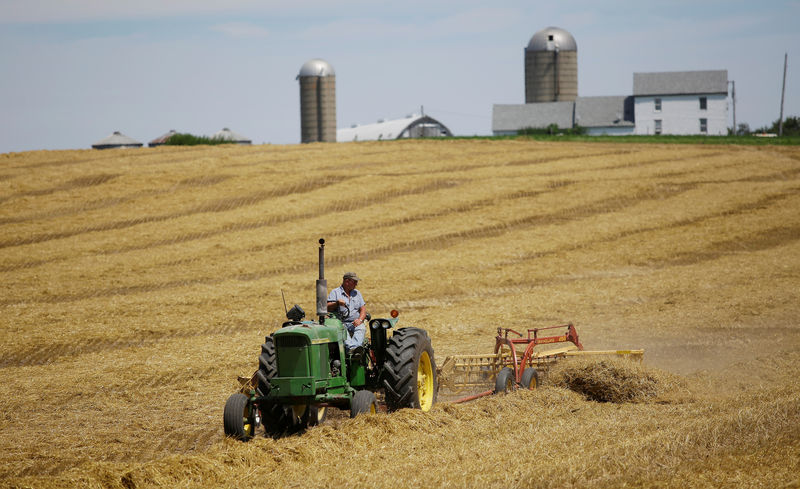By Humeyra Pamuk
WASHINGTON (Reuters) - The U.S. government will pay a minimum of $15 per acre to farmers hurt by President Donald Trump's trade war with China under an aid package to be unveiled before the end of the week, Agriculture Secretary Sonny Perdue said on Tuesday.
"We'll have information for you before the week ends," Perdue told reporters when asked about the aid, which is planned to total about $16 billion.
U.S. farmers, a key Trump constituency, have been among the hardest hit in the trade war between the world's two largest economies. Soybeans are the most valuable U.S. farm export, and shipments to China dropped to a 16-year low in 2018.
A new aid program would be the second round of assistance for farmers, after the Department of Agriculture's $12 billion plan last year to compensate for lower prices for farm goods and lost sales stemming from trade disputes with China and other nations.
The USDA has redesigned last year's aid program based on feedback. The new package will have a single payment rate per county, calculated by the damages in that area, instead of a rate for every commodity across the nation.
Perdue said the minimal payment would be $15 an acre. "We're anticipating right now three tranches; probably 50 percent ... or minimum there of $15 an acre initially," he said, adding the second and third tranches would be dependant on market conditions.
Craig Ratajczyk, chief executive of the Illinois Soybean Association, said the $15-per-acre minimum would make agricultural lenders more comfortable.
"This will help provide some type of stability for that type of lending institution. It’s confidence," he said on the sidelines of an agriculture technology conference in Chicago.
Farmers are more focused on how big their autumn corn and soybean harvests will be than on the details of the USDA aid program, after severe planting delays this spring, Ratajczyk said. "Our farmers are waiting on what’s going to come out of the ground."

U.S. President Donald Trump and Chinese President Xi Jinping agreed at last month's G20 summit in Osaka, Japan, to restart trade talks that stalled in May. Trump said at the time he would not impose new tariffs and U.S. officials said China agreed to make agricultural purchases. But Trump said on July 11 that China was not living up to promises to buy U.S. farm goods.